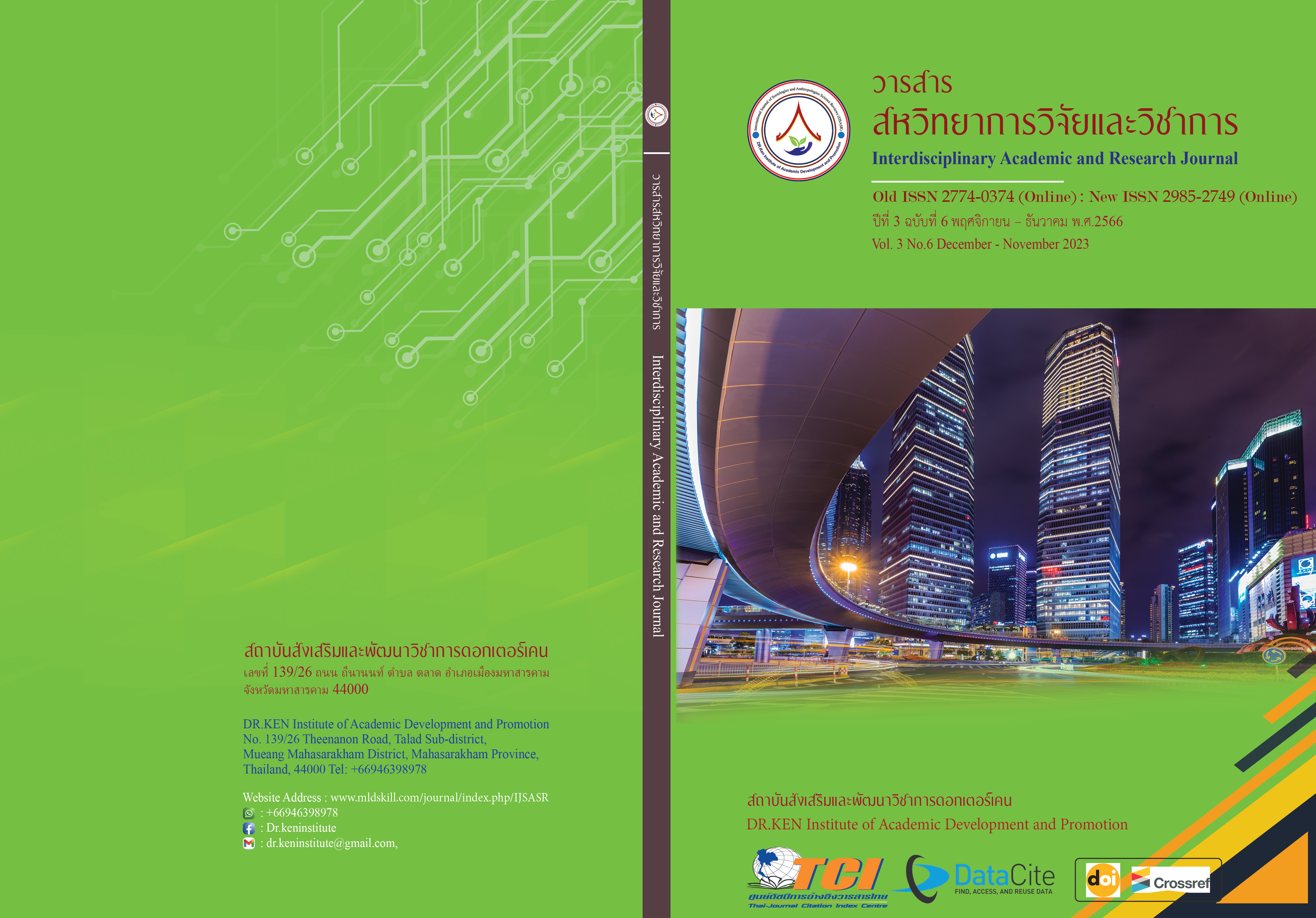Royal Science...Toward Sustainable Educational Administration
DOI:
https://doi.org/10.60027/iarj.2023.271395Keywords:
Royal Science; , Educational Administration; , Sustainable Educational AdministrationAbstract
Background and Aims: The king's science is a royal speech. Royal advice and the work of His Majesty King Bhumibol Adulyadej was given to the Thai people. It is a body of knowledge and wisdom. With the aim of development Prevent and solve problems to benefit the people and affect all mankind so that they can live a stable life. Peace and sustainability.
Methodology: This study used document analysis and related research methods. Analyze the content and present it descriptively according to the study objectives.
Results: The knowledge gained from various royal projects of His Majesty King Bhumibol Adulyadej has blasted the inside Planting forests in the hearts of the people, sufficiency, step by step, etc. Therefore, "The King's Philosophy" is considered the "Science of Life" because it records the experiences of His Majesty's work that enabled Thailand to overcome various crises in all dimensions. very well The King's science is based primarily on the philosophy of Sufficiency Economy. This is a philosophy that has been given His Majesty's guidance and guidance. It can lead to the goals of education management today by inserting it into educational administration teaching and learning. Including the implementation in daily life to aim for sustainable development and peaceful living for all Thai people.
Conclusion: Knowledge from the Royal Project of His Majesty King Bhumibol Adulyadej presents the philosophy of Sufficiency Economy, the "science of life," promoting the practice of educational administration and Teaching, and promoting sustainable development and well-being of the Thai people.
References
จิตตาภา สารพัดนึก ไชยปัญญา และคณะ. (2564). แนวคิดศาสตร์พระราชาในนวนิยายยอดเยี่ยมสมัยรัชกาลที่ 9. วารสารสังคมศาสตร์และมานุษยวิทยาเชิงพุทธ. 6 (6), 190-203.
ปกรณ์กิตติ์ ม่วงประสิทธิ์ และคณะ. (2563). ศาสตร์พระราชากับการพัฒนาการบริหารการศึกษาอย่างยั่งยืน วารสารศึกษาศาสตร์ มหาวิทยาลัยศิลปากร. 18 (2), 21-42.
มูลนิธิชัยพัฒนา. (2566). เศรษฐกิจพอเพียง. Retrieved on June 13, 2023 from: https://www.chaipat.or.th/publication/publish-document/sufficiency-economy/item/1309-2010-06-03-09-50-07.html.
วิไลวัจส์ กฤษณะภูติ. (2561) ศาสตร์พระราชาพัฒนาสังคมไทยสู่สังคมโลก. วารสารวิชาการและวิจัย มหาวิทยาลัยภาคตะวันออกเฉียงเหนือ. 8 (1), 1-9.
สารานุกรมในพระบาทสมเด็จพระเจ้าอยู่หัว. (2552). หลักปรัชญาของเศรษฐกิจพอเพียง. พิมพลักษณ์, กรุงเทพฯ : อมรินทร์พริ้นติ้งแอนด์พับลิชชิ่ง.
สำนักงานคณะกรรมการพิเศษเพื่อประสานงานโครงการอันเนื่องมาจากพระราชดำริ. (2564). เศรษฐกิจพอเพียง. Retrieved on September 25, 2022 from: http://www.rdpb.go.th/.
สุเมธ ตันติเวชกุล. (2557). ตามรอยพระยุคลบาทครูแห่งแผ่นดิน. พิมพ์ครั้งที่ 2. กรุงเทพฯ: สานักพิมพ์แห่งจุฬาลงกรณ์มหาวิทยาลัย.
Downloads
Published
How to Cite
Issue
Section
License
Copyright (c) 2023 Wiralphat Wongwatkasem, Tanaporn Saelim, Nattapapa Suriya, Suvijuk Mansaraneeyatham, Phot Charoensanthia

This work is licensed under a Creative Commons Attribution-NonCommercial-NoDerivatives 4.0 International License.
Copyright on any article in the Interdisciplinary Academic and Research Journal is retained by the author(s) under the under the Creative Commons Attribution-NonCommercial-NoDerivatives 4.0 International License. Permission to use text, content, images, etc. of publication. Any user to read, download, copy, distribute, print, search, or link to the full texts of articles, crawl them for indexing, pass them as data to software, or use them for any other lawful purpose. But do not use it for commercial use or with the intent to benefit any business.
















.png)


